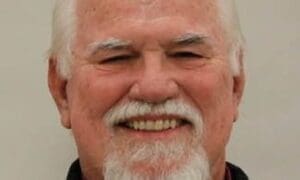A pastor friend called, greatly distressed because one of his core church members had informed him that his family was leaving the church because he was not being fed. If you really want to master the art of church grumbling, that is one statement that you must know how to use: “I’m not being fed.”
Granted, there are times when the complaint is valid. Unfortunately, many pulpit ministries across the land fail to proclaim the Word of God. As Paul wrote to Timothy, “Preach the Word; be instant in season, out of season; reprove, rebuke, exhort with all longsuffering and doctrine” (2 Timothy 4:2). Pastors must not only tend the flock, but also feed the flock.
Yet in my experience, “I’m not being fed” is often a smokescreen for some other issue. For example, one pastor wrote that a member with that complaint finally admitted that he did not like the way the men’s ministry was restructured. Another pastor shared about a young couple who was drawn to a church with more people their age and used the not being fed angle as their out.
I wonder if people have really stopped to think about what “I’m not being fed” implies? Babies have to be fed. One day they’ll be able to hold their own bottle, then use the sippy cup with a lid, and then progress to the cup without a lid. Eventually, they’ll move up to baby food and in time to solid food.
The whole point of parenting is to help a little baby develop into an adult who is capable of preparing his or her own meals and taking care of himself or herself.
I can’t imagine a seasoned believer going out to eat with their pastor and allowing him to reach across the table, cut up his meat, and then feed him bite by bite. That would be insulting.
The maturing believer must take responsibility for his own spiritual intake. The pastor normally has one major time per week to “feed his sheep.” Just as a person would not eat Sunday dinner only and expect that lone meal to satisfy him all week long, the pastor’s sermon was never intended to supply a week’s worth of spiritual intake.
The pastor’s job is to equip the saints for daily life, challenge them to obey God’s Word and apply it to life, and encourage them to keep their focus on the Lord. Often members go home and never open their Bibles between Sundays, and then wonder why they aren’t making spiritual progress.
We take responsibility for our own spiritual feeding when we are committed and disciplined enough to establish a daily habit of Bible reading and prayer. Many people start their day with a quiet time of prayer and study.
Make time to read slowly and reflect on what you’ve read. Often we don’t understand Bible passages. Try not to get stuck on what you don’t understand. Instead, concentrate on what you do understand. Read one Psalm and one chapter of Proverbs daily as you read through other books of the Bible.
As you begin reading, ask God to give you one major principle or insight from the passage. Ask yourself, “What is God saying to me today through these verses?” Read them over again and meditate on a verse or two. You’ll be surprised at what comes to mind, and you’ll be inspired and encouraged. You’ll discover that God’s Word really is a lamp to my feet and a light to my path (Psalm 119:105).
Bill Hoyt nailed this issue when he wrote, “I am responsible for my own spiritual diet. My pastor preaches clear, compelling messages week after week. Every time I hear him I learn … But he is not responsible for my spiritual diet or nutrition. He is supplemental to my own study of the Word … I deeply appreciate his ministry in my life, but in the end, if I am not being fed, it’s my problem, not his! It’s my job to feed myself!”
—————–
[Dr. David L. Chancey is pastor, McDonough Road Baptist Church, Fayetteville, Ga. The church family meets at 352 McDonough Road, just past the department of drivers’ services building, and invites you to join them this Sunday for Bible study at 9:45 a.m. and worship at 10:55 a.m. Visit them on the web at www.mcdonoughroad.org.]











Leave a Comment
You must be logged in to post a comment.